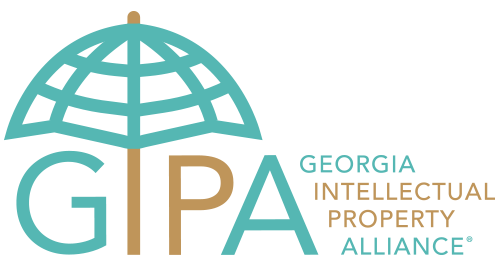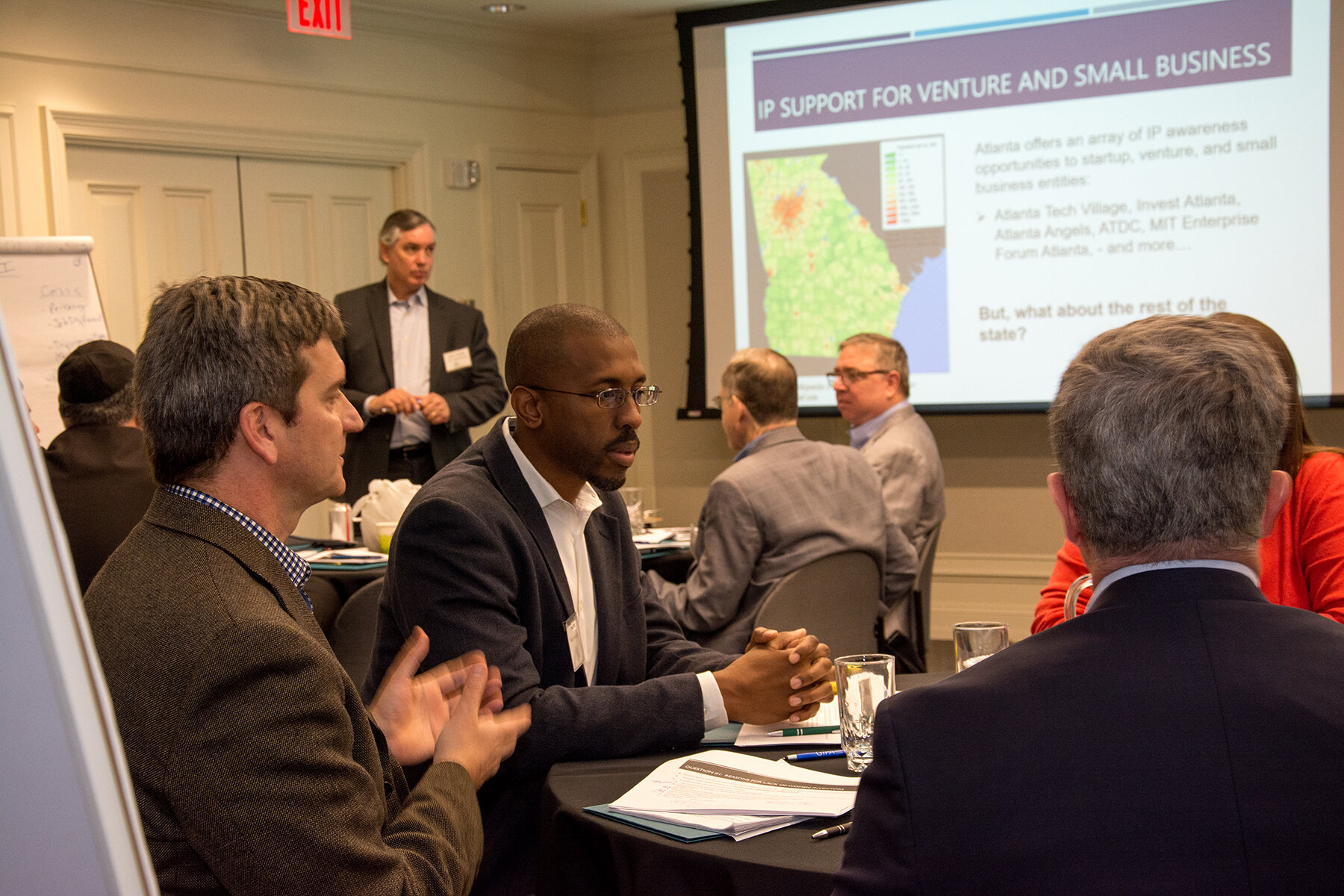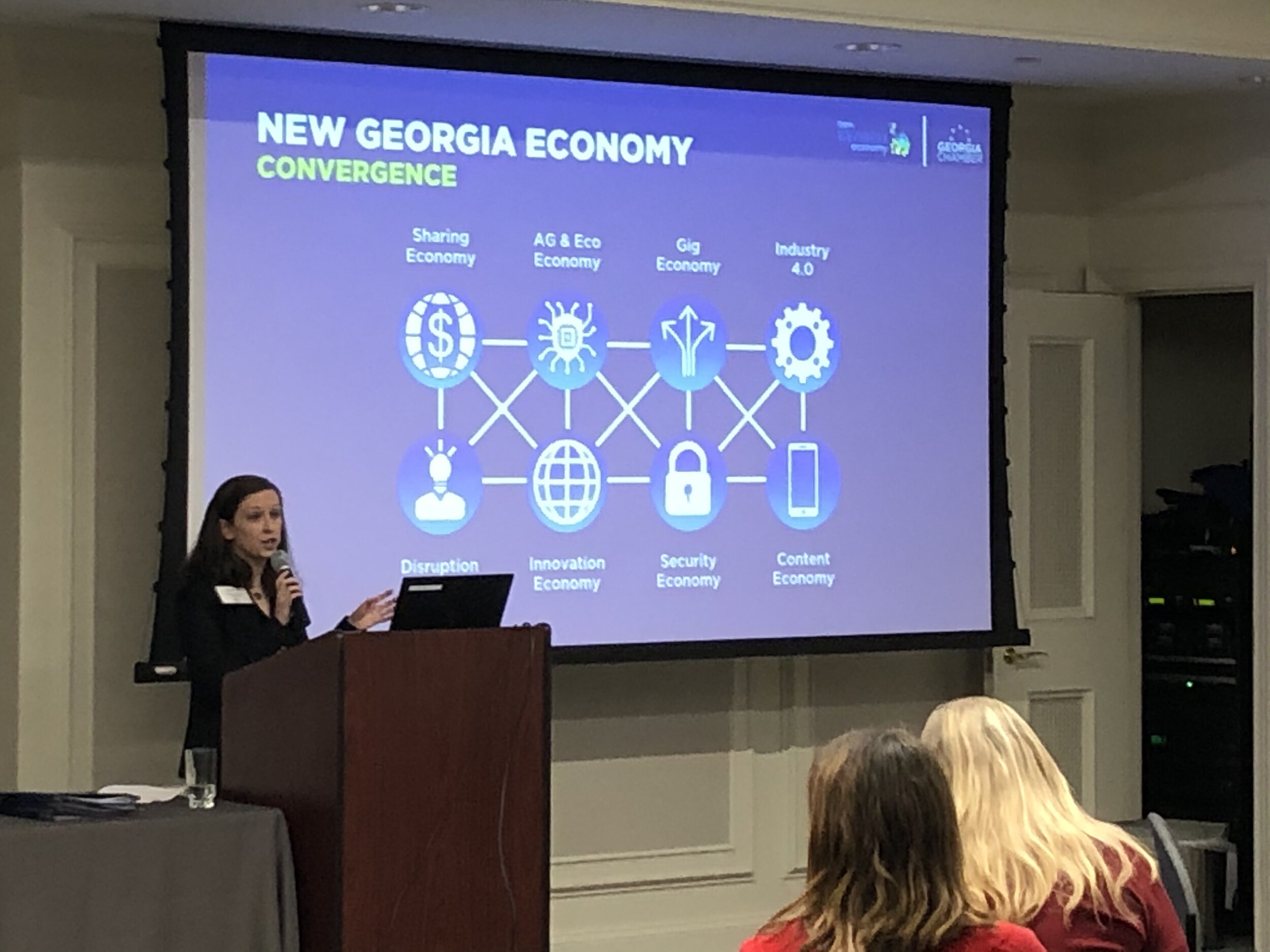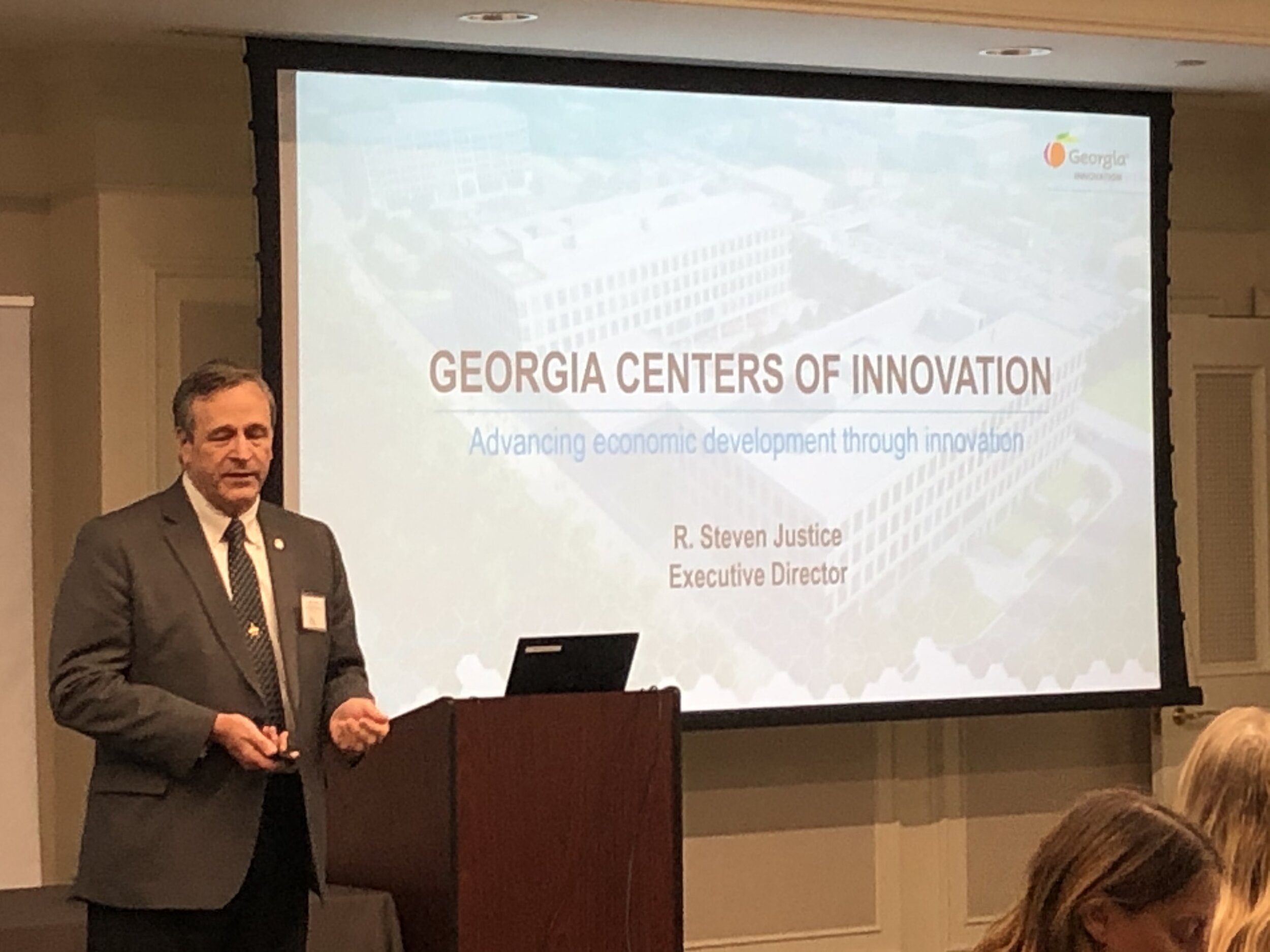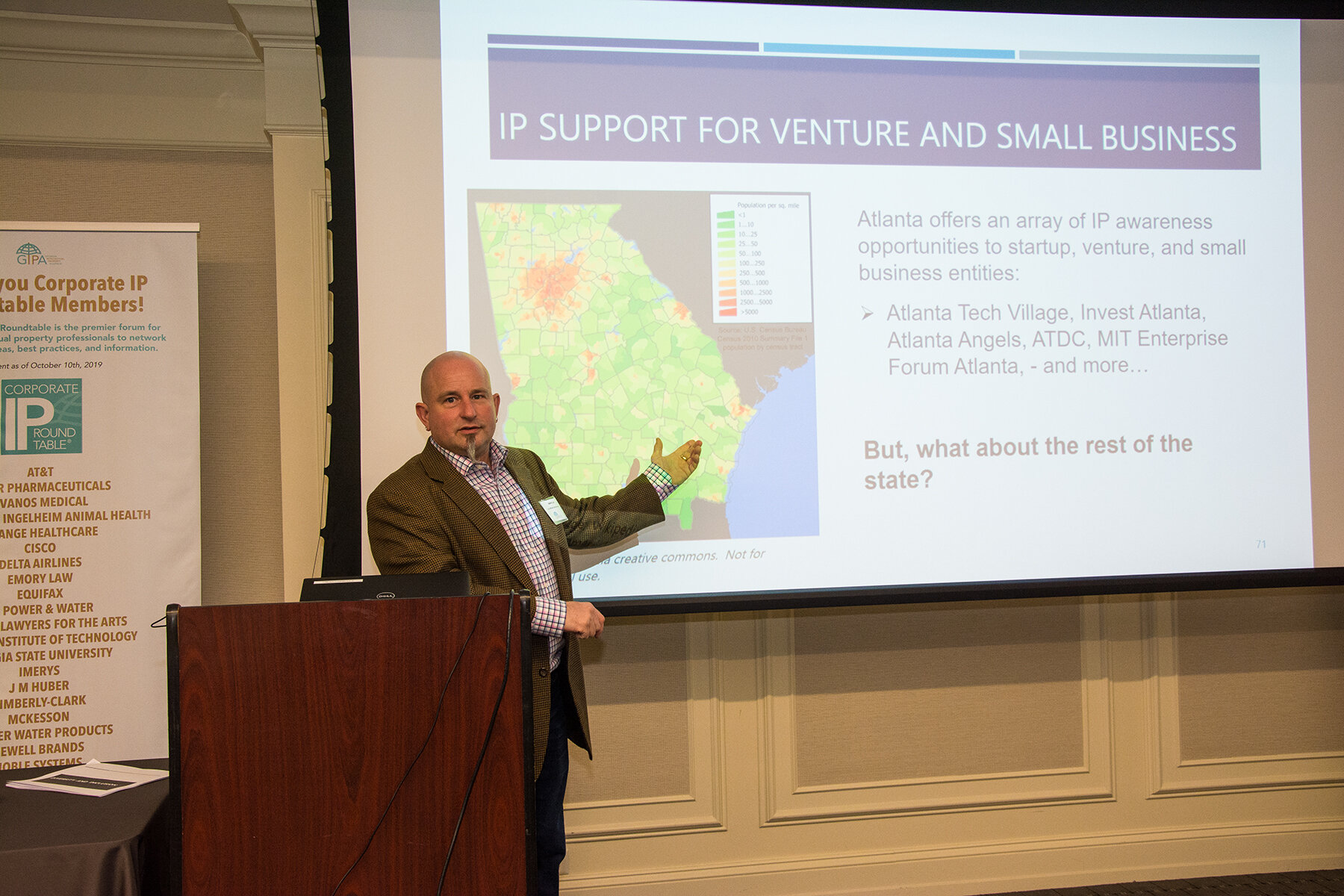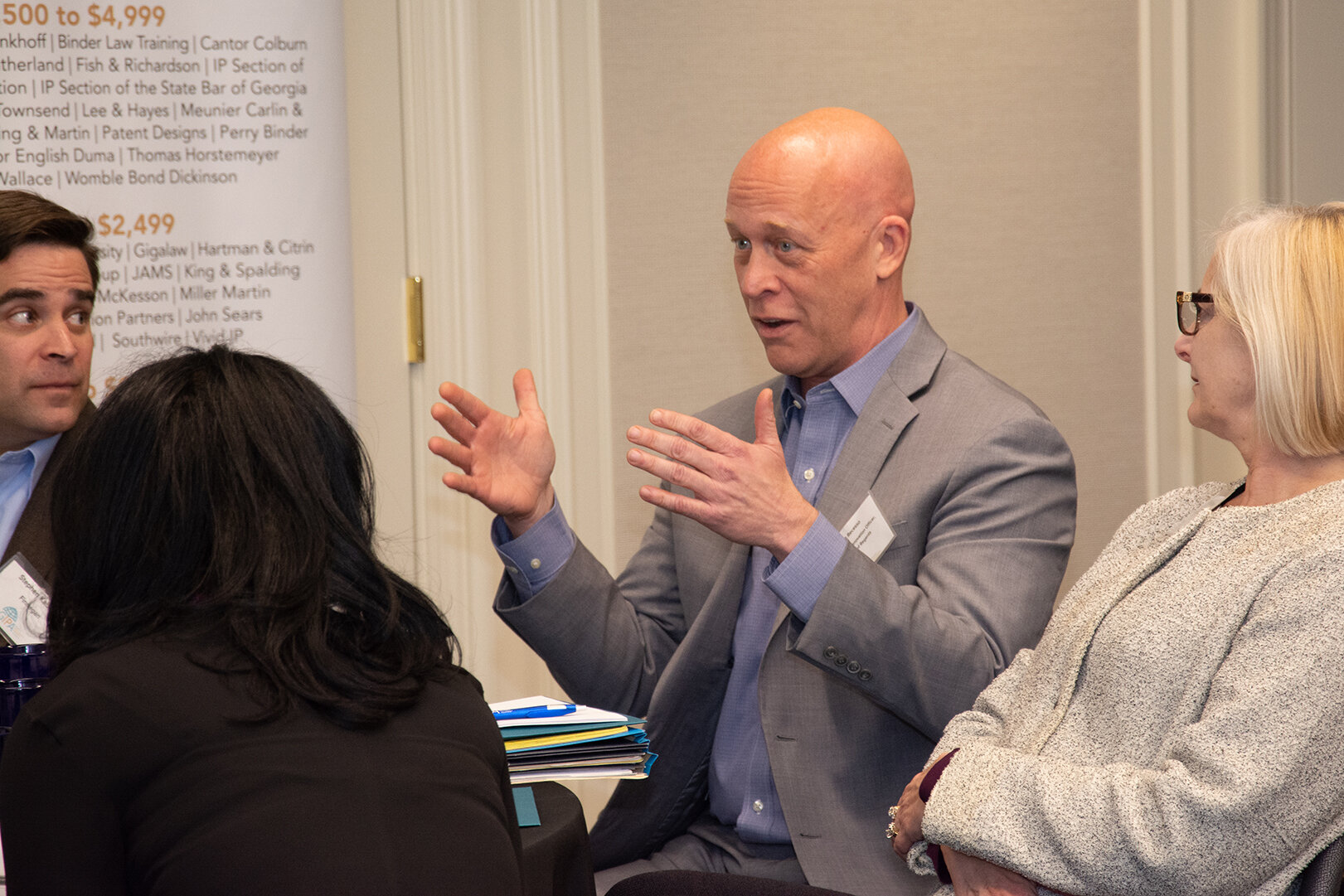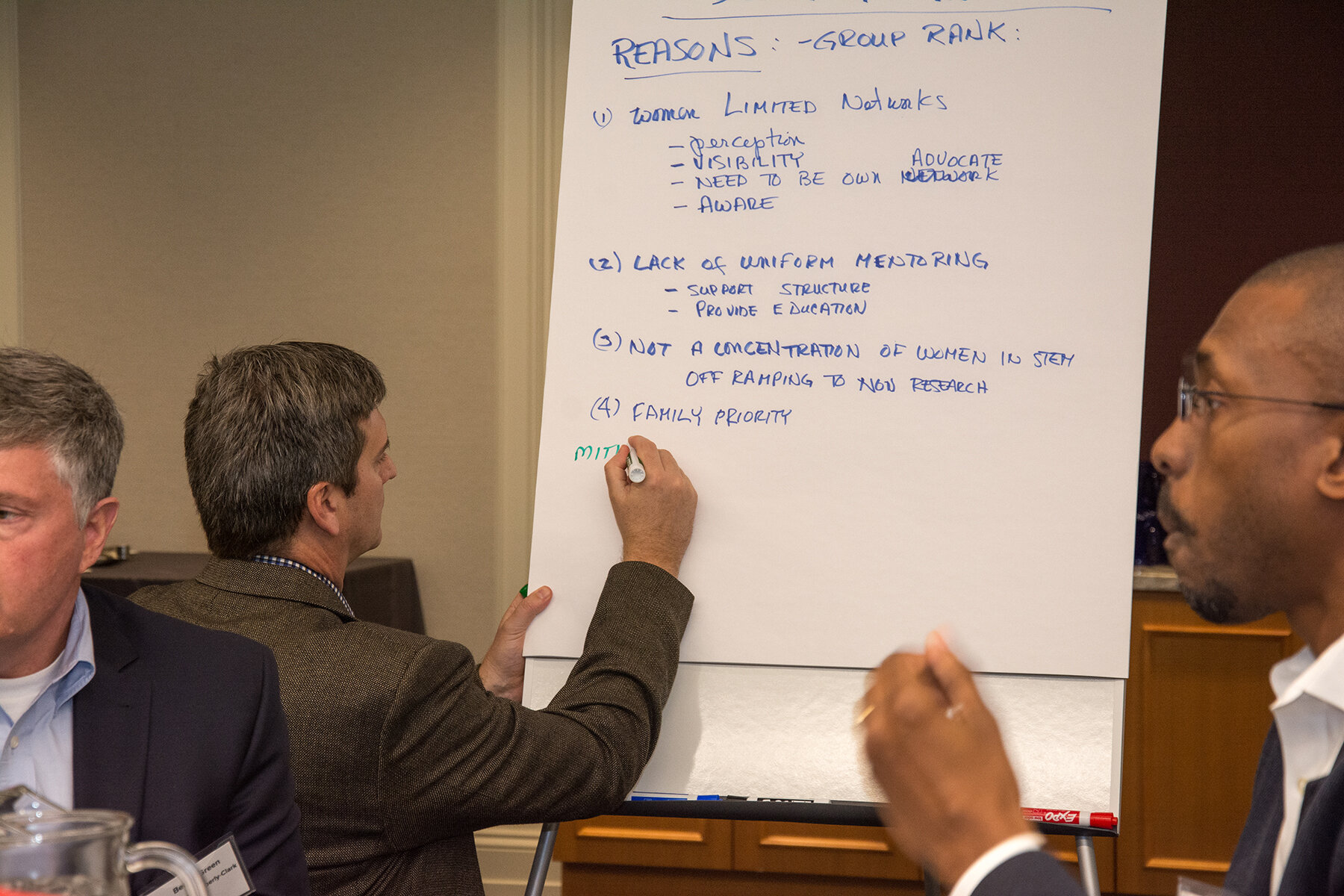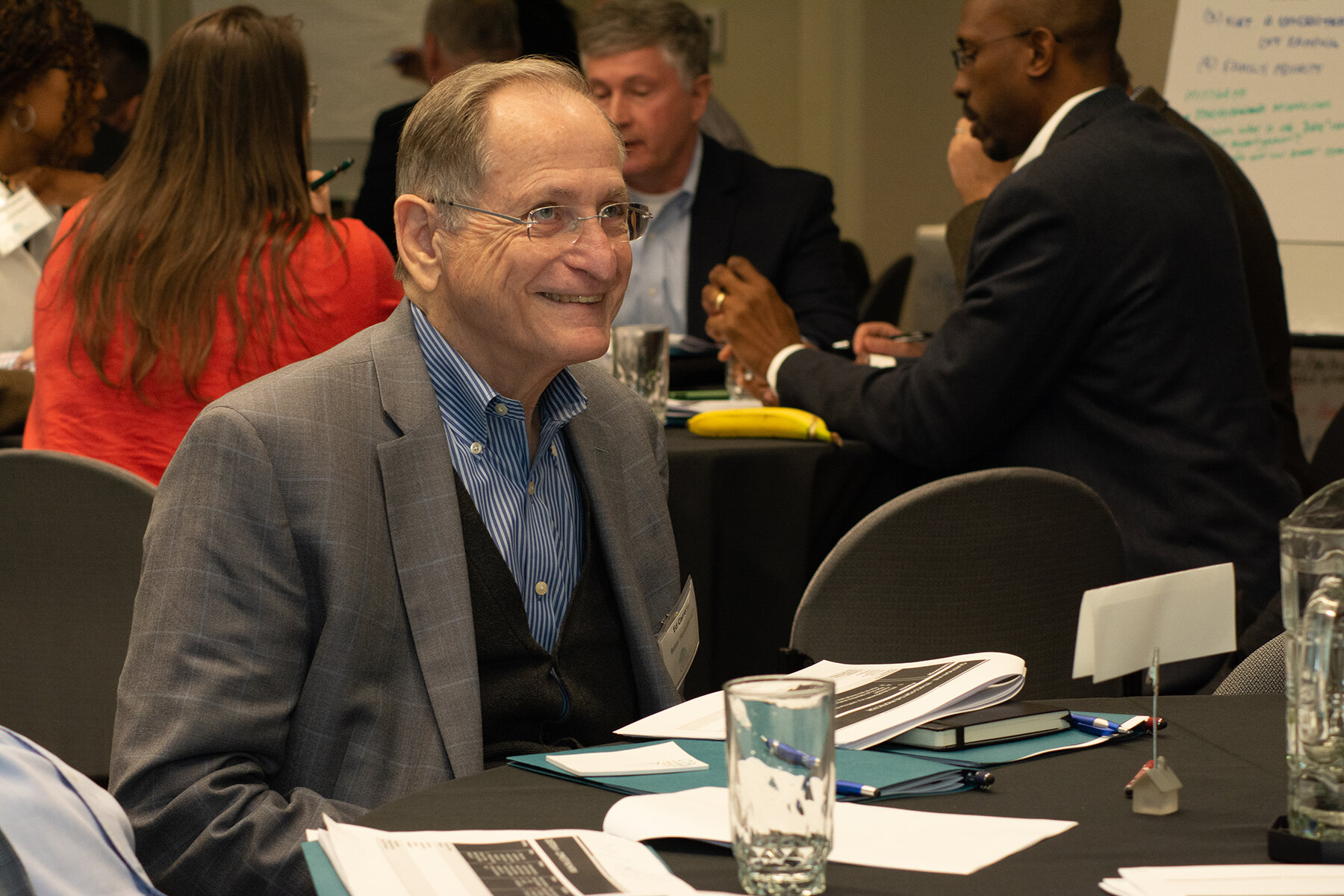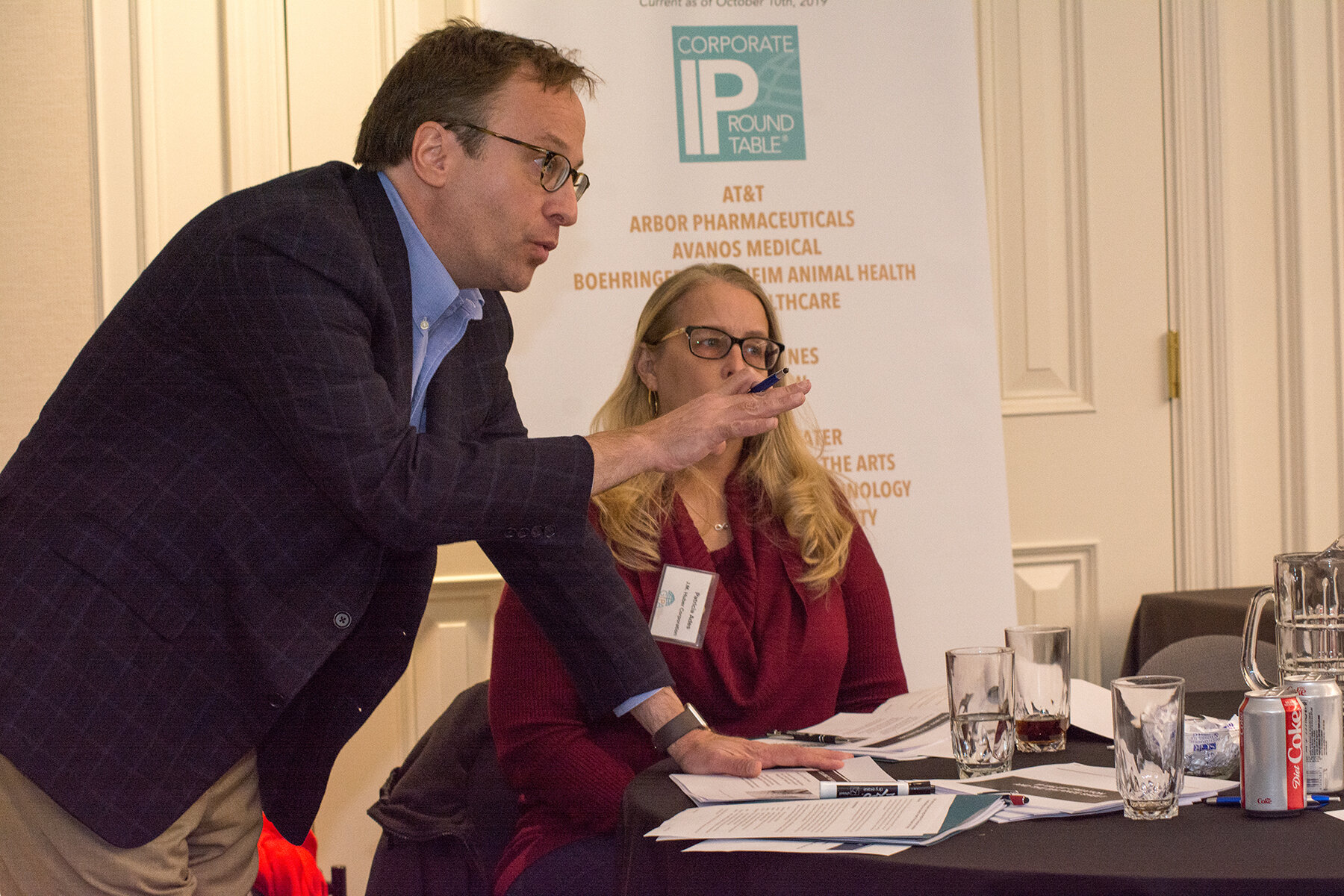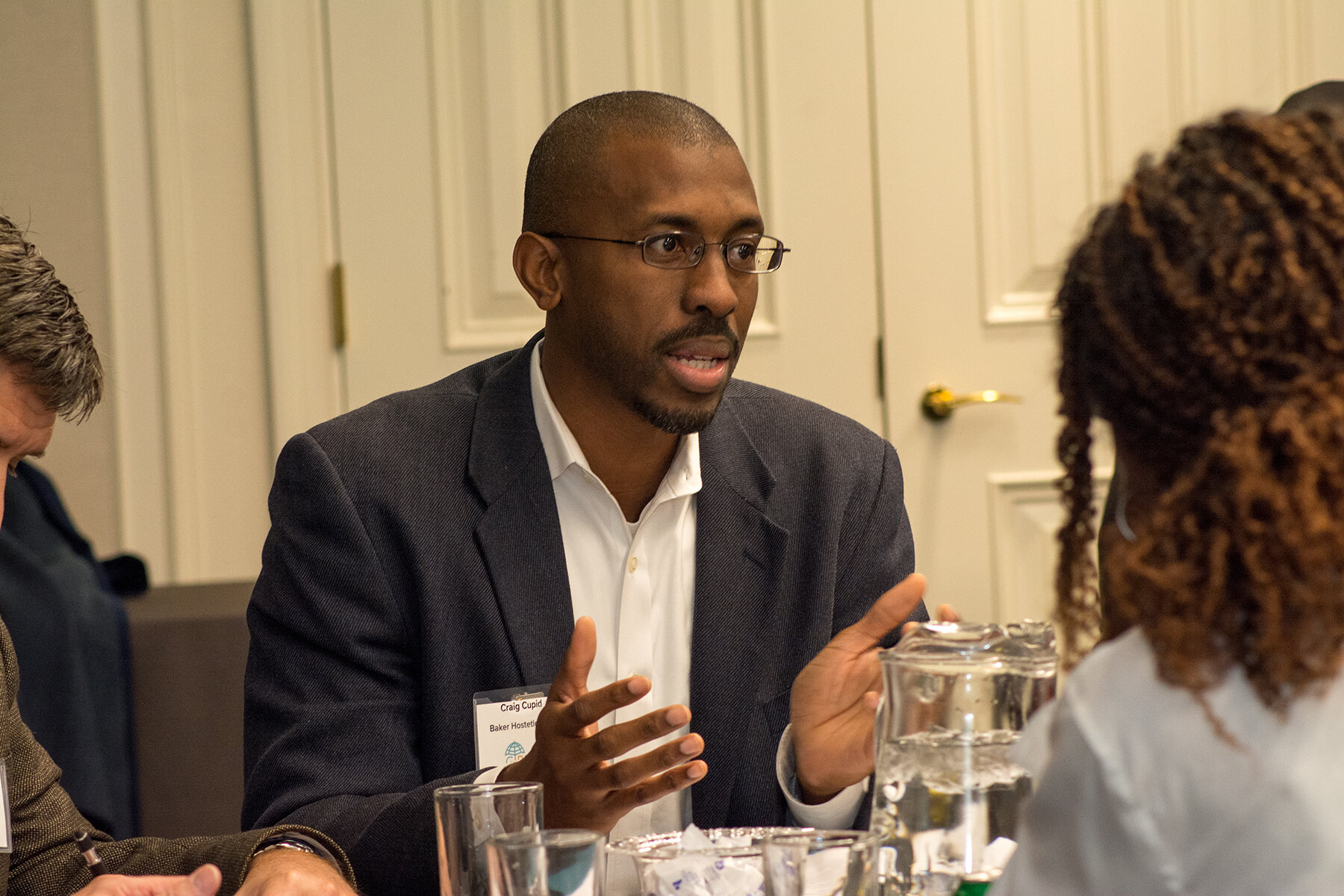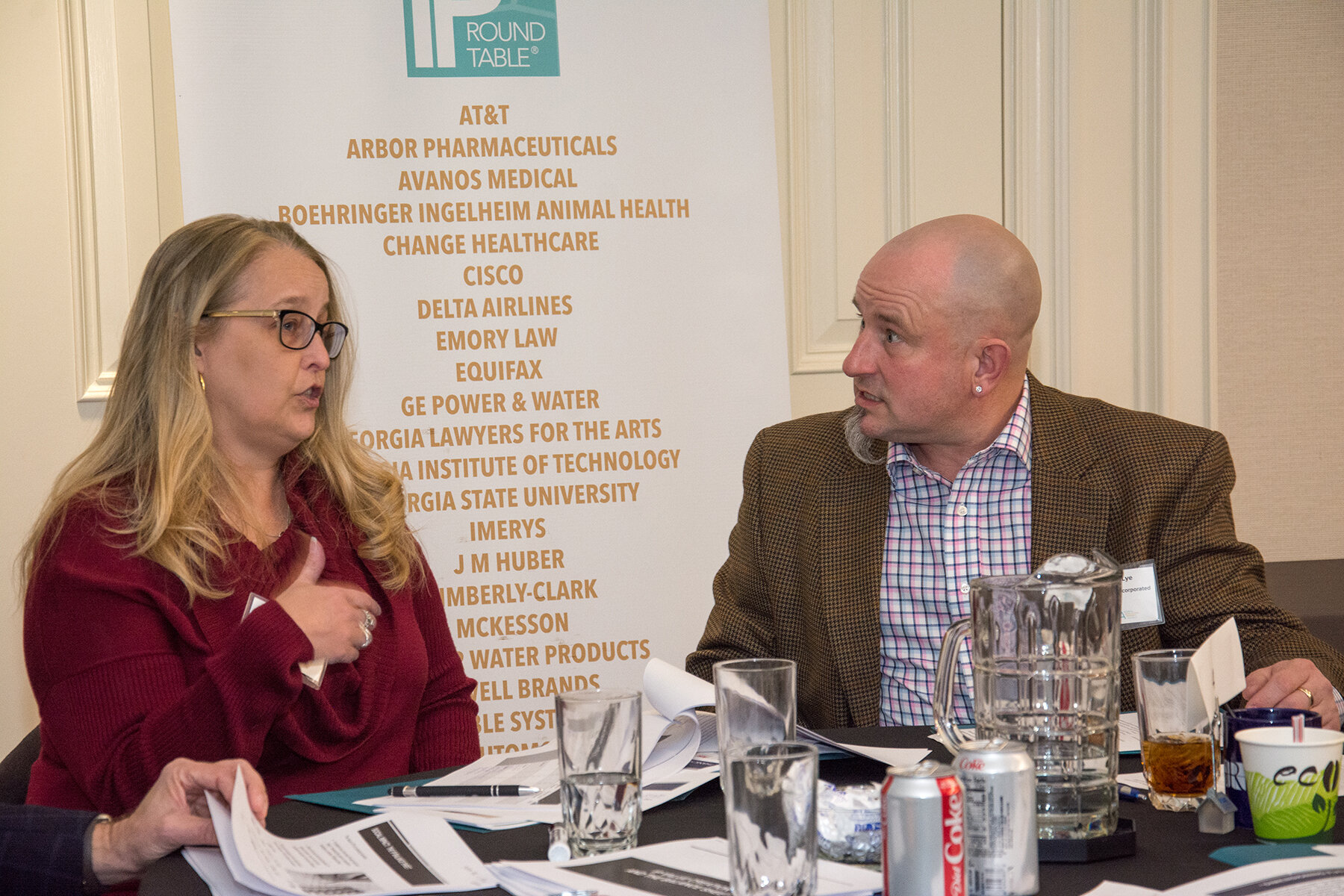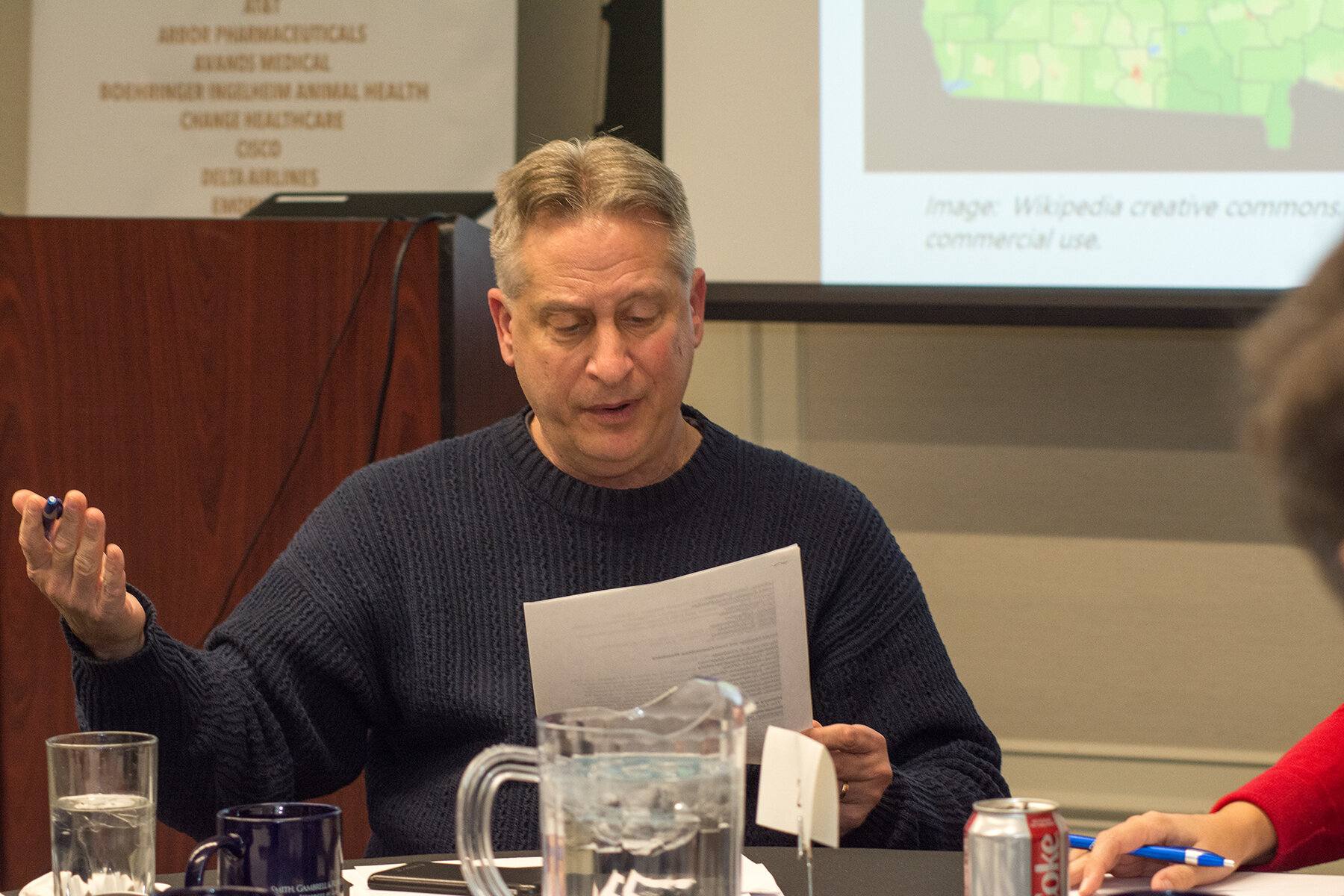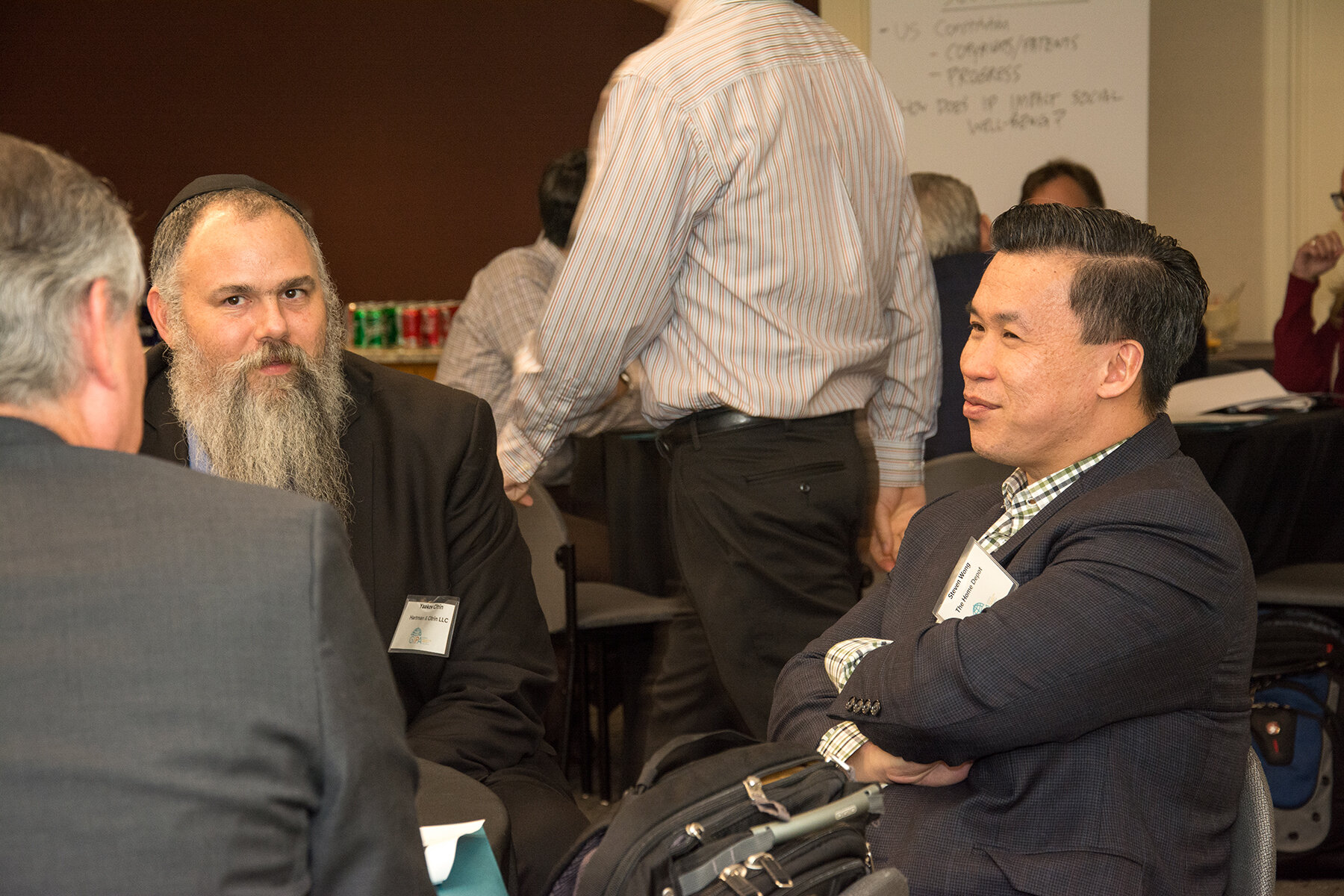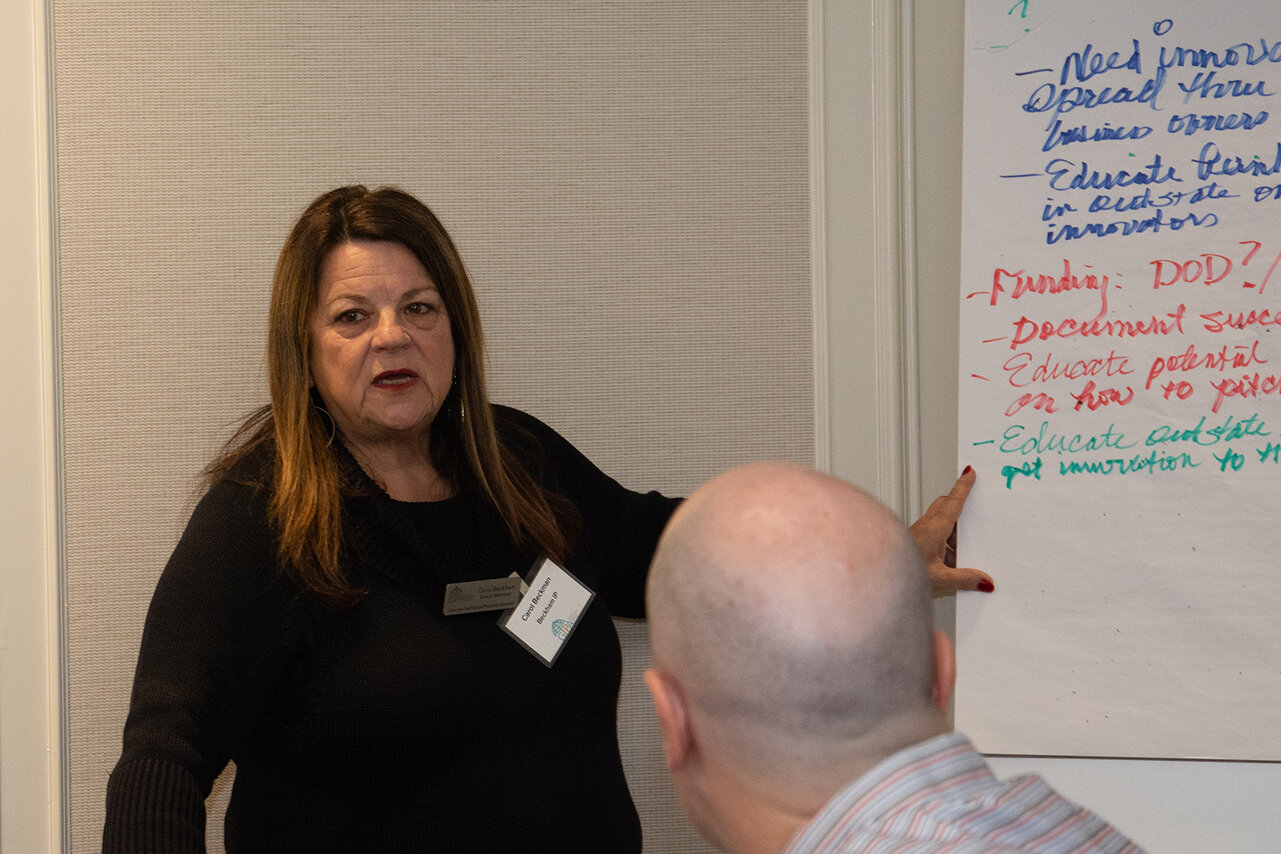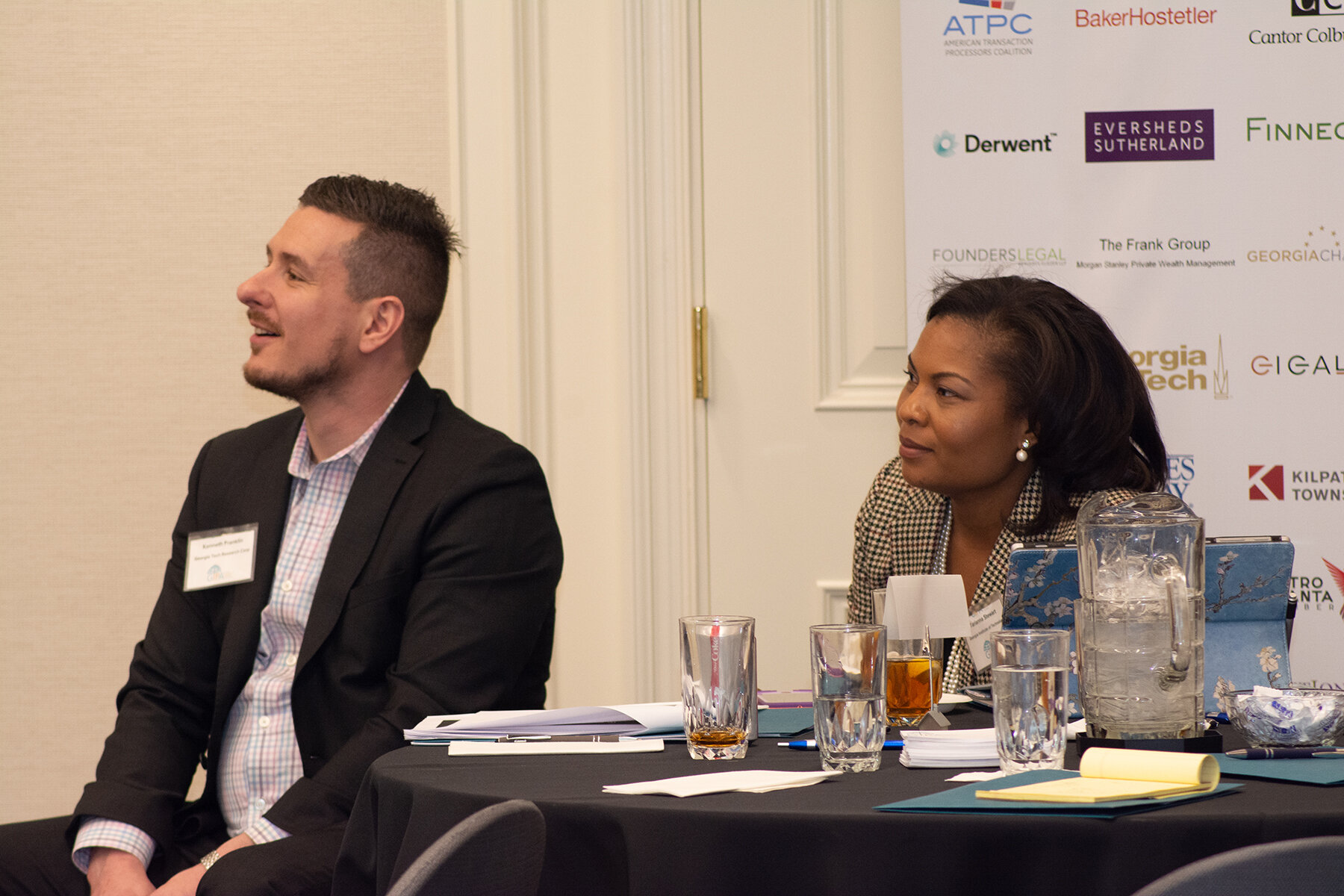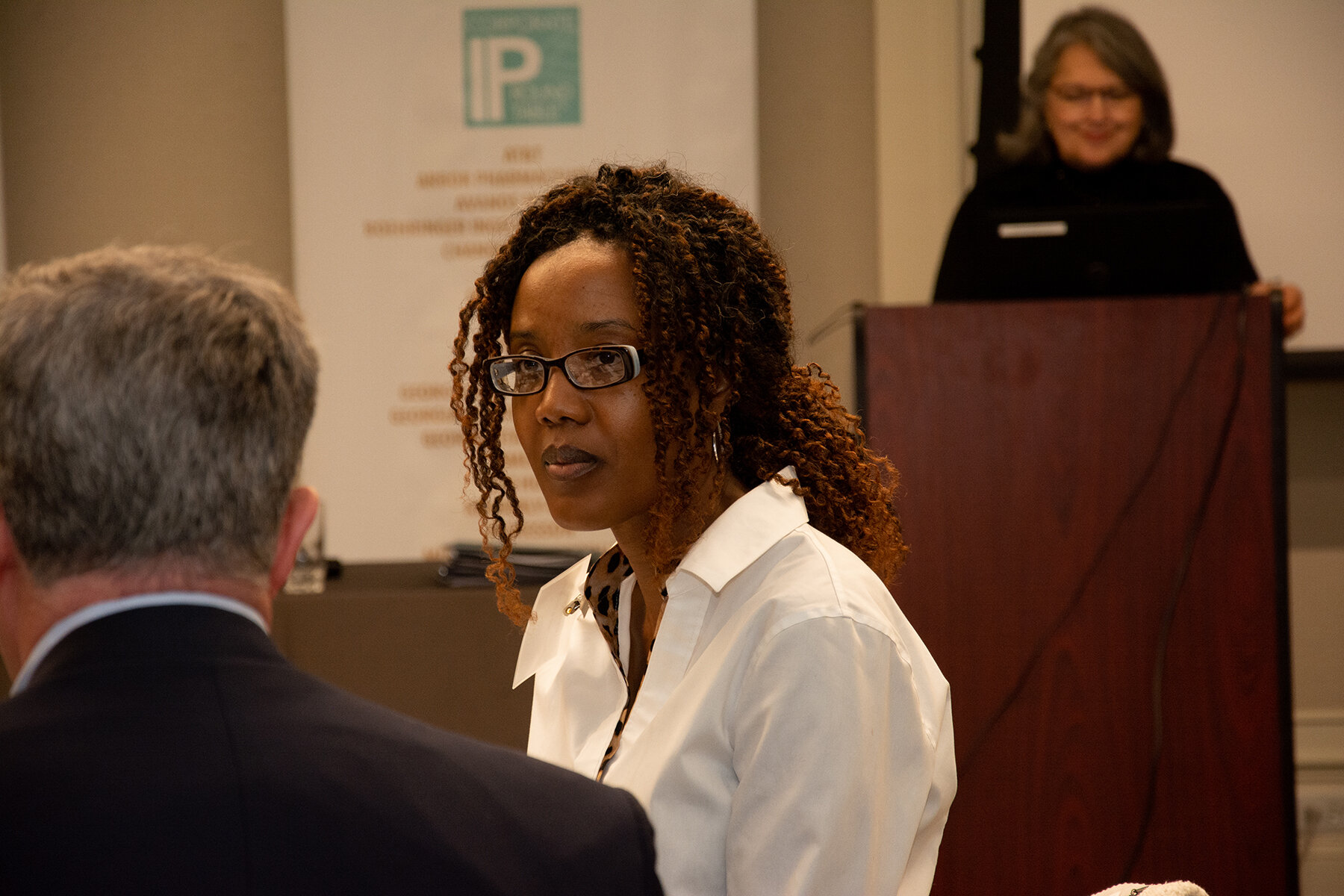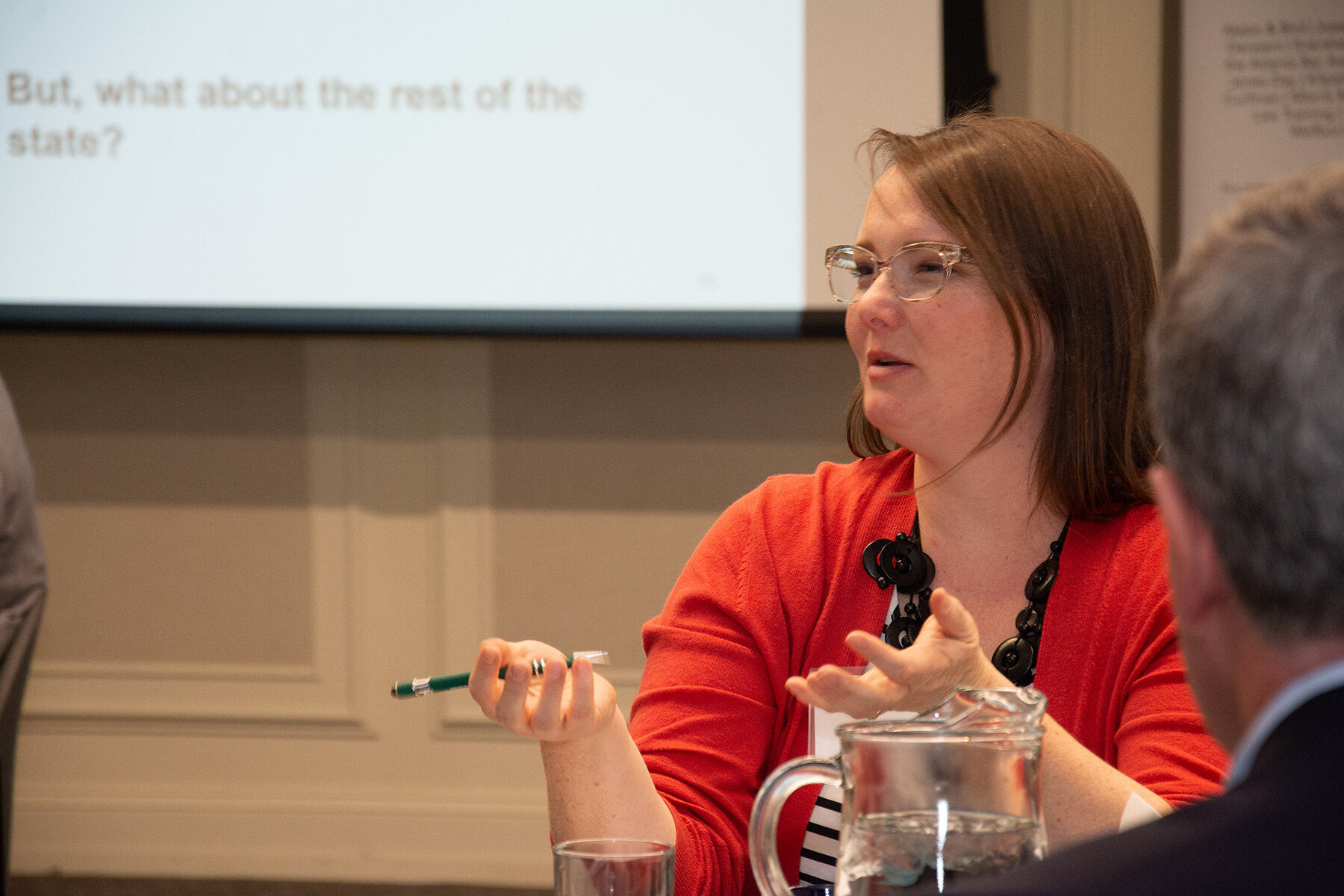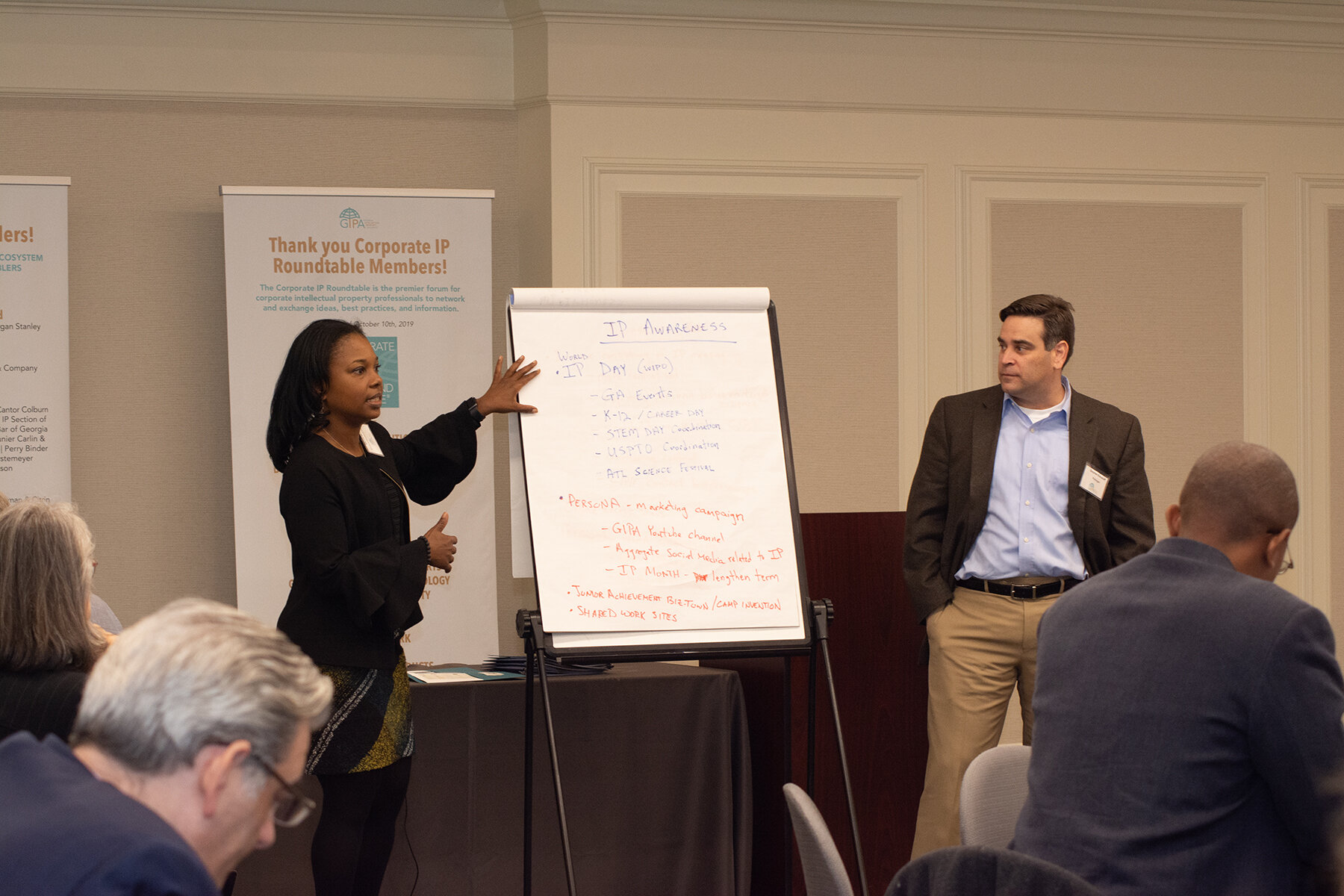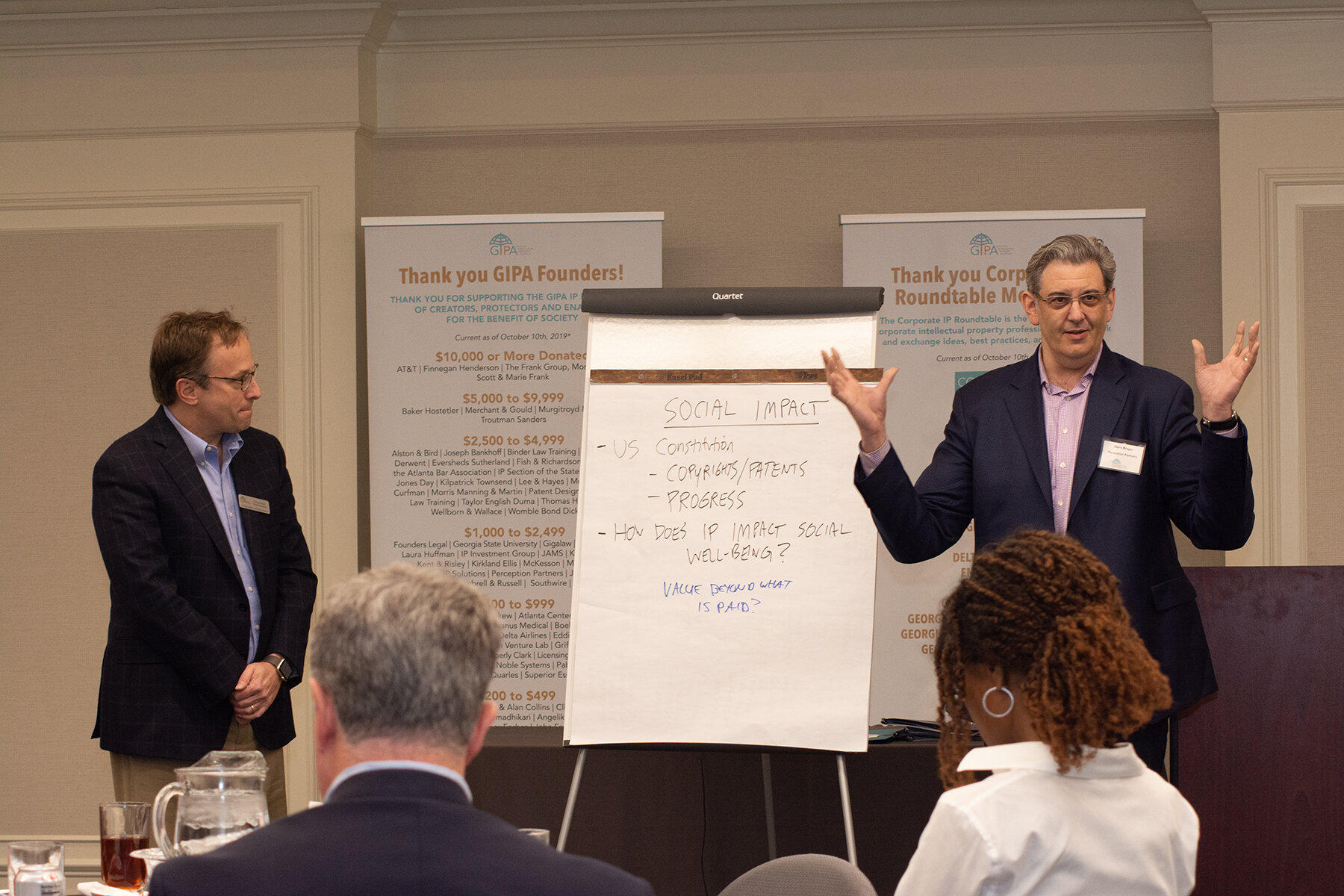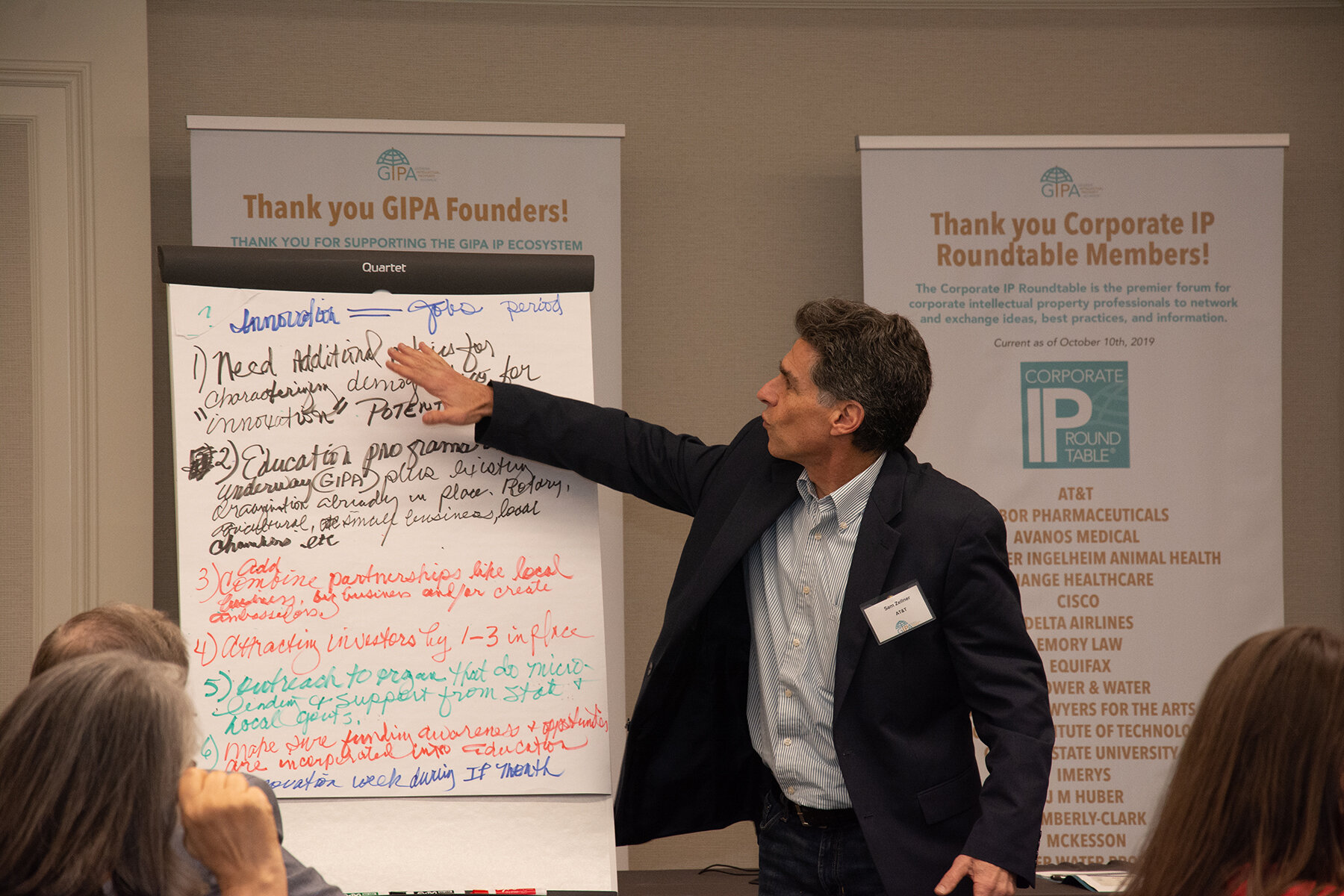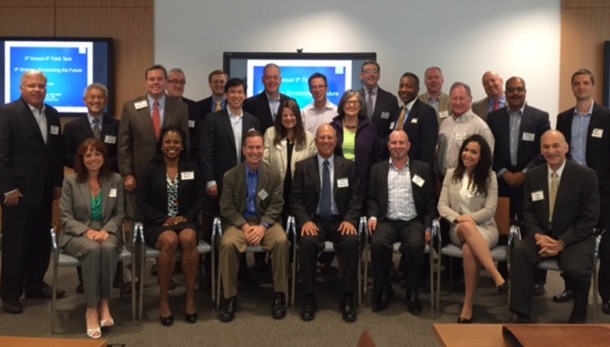
THEME: DIMENSIONING FUTURE IP NEEDS IN THE STATE OF GEORGIA
IP Think Tank Co-Chairs
Dr. Corrine Sukiennik
Dr. Jason Lye
The question: “What are the intellectual property needs that will help Georgia’s businesses grow and make Georgia a center of technology excellence with societal impact?"
Each Think Tank seeks to address cutting-edge issues at the forefront of IP law and policy. The goal is to facilitate the creation, protection, and enablement of intellectual property for the economic and social well-being of our citizens.
IP Think Tank Thought Leaders
RECENT THINK TANK PRESENTERS
R. Steven Justice P.E.
Executive Director, Centers of Innovation, GA Dept. Of Economic Development
Jason Lye Ph.D.
President, Lyco Works Incorporated
Chair-Elect of the GA Section of the American Chemical Society
Daniela B. Perry
Senior Director of Public Policy, GA Chamber of Commerce
Corrine Sukiennik Ph.D.
Principle, C-Synergies LLC
GLOBAL INTELLECTUAL PROPERTY THOUGHT LEADERSHIP SINCE 2014
PRIOR INVITED & SPONSORING PARTICIPANTS INCLUDE
AT&T Intellectual Property | Baker Hostetler | Beckham Intellectual Asset Management | Cantor Colburn | Centers for Disease Control | Clayton McKay | C-Synergies LLC | Emory Univeristy & TIGER | Equifax | Georgia-Pacific | Georgia Tech | GE Power Systems | Global Center for Medical Innovation | GSU J Mack Robinson College of Business | Halyard Health | Hutter Law Group | Inavisis, Inc. | J.M. Huber Corp. | Kids II | Kimberly-Clark Corp. | Lee & Hayes | Lyco Works Incorporated | Merial | Mueller Water Products | Newell Brands | Nobel Systems | Perception Partners | PwC | Sionic Mobile Corp. | Smith Gambrell & Russell | Solvay Specialty Polymers | Southwire | Taylor English | The Coca-Cola Company | The Home Depot | UPS Global Innovations | Womble Bond Dickinson
THANK YOU TO ALL THOSE WHO HAVE SUPPORTED THIS PROGRAM SINCE 2014
To be considered as an IP Think Tank participant, facilitator, volunteer or sponsor, please contact a Co-Chair today
Prior 0utcomes from the IP Think Tank
New IP Instrument
“The Biomark”
One IP Think Tank goal in 2018 was to identify new-to-the-world legal IP instruments beyond patents to strengthen IP protection of new discoveries.
The concept of the “Biomark" evolved. An IP task force continued working on this goal following the 2018 IP Think Tank, and here’s a summary:
The Georgia Biomark instrument
The Problem There are currently no commercial incentives to publish the results of genetic disease investigations, principally because there is no way for commercial entities to recoup their investment in this expensive research. Consequently, the little research that is published originates from public funding, for example, through NIH.
Proposed Solution The proposed Biomark instrument would allow a Georgia based researcher to stake a claim as the first publisher of a naturally occurring chemical sequence. Those wishing to use the sequence in a commercial product in GA would be required to compensate the Biomark owner at a reasonable and fair pre-determined royalty rate for the life of the Biomark.
Intended Impact The Georgia Biomark is intended to encourage bio-science and chemical research, thereby expanding technical and well-compensated employment within the state. The Biomark will also reduce commercial risk for new diagnostic startups in GA, by providing an alternate way to recoup their investment in genetic research.
Scope Biomarks relate to the discovery of naturally occurring chemical or biochemical sequences and associated function. These may be sequences of naturally occurring genetic base pairs, amino acids, temporal sequences such as chemical transformation mechanisms, or other naturally occurring sequences of a chemical nature. The sequence must be published in a curated database or a peer reviewed journal along with evidence linking to function.
How Biomark Works
If the naturally occurring discovery is made in GA, and the discovery is then first to be published in a peer-reviewed journal and / or a curated database (such as those maintained by the NIH) along with supporting evidence, then the discoverer is entitled to declare a Biomark on the combination of sequence and function.
Just as today, there are no restrictions on who may make use of published data, even if it is Biomarked.
If a GA-based entity uses the discovery, for instance to make a diagnostic device, then the Biomark owner is entitled to a pre-determined compensation for the use of the discovery.
Conflicts that arise are to be determined by WIPO arbitration rules and standards, thereby maintaining low transactional cost burdens for the researchers.
Why GA? We hope that Georgia will be first of many states to adopt this new instrument, in a manner similar to the state-by-state evolution of Trade Secret law, which was eventually expanded nationally under federal law.
READ the 2018 IP Think Tank White Paper
BY JASON LYE, SAM KHOURY AND CORRINE SUKIENNIK
From Intellectual Asset Management (IAM) Magazine
PUBLISHED JULY/AUGUST 2018
